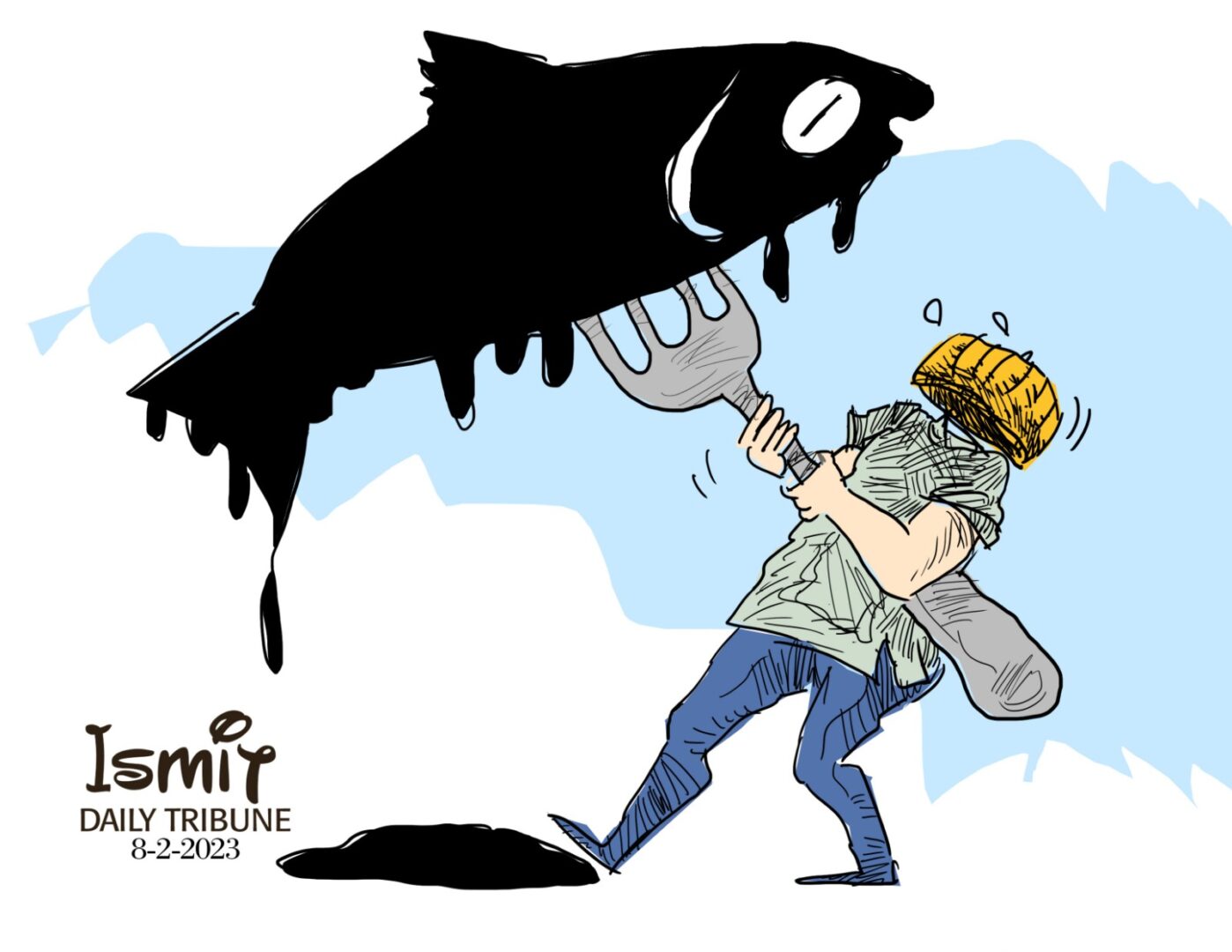At a time of greatest need, one learns the true character of those who proclaim to always be on the side of the marginalized sector.
Business big kahuna San Miguel Corp.’s motto, “Walang iwanan” (Leave no one behind), became an empty sales pitch during the Mindoro oil spill, one of the biggest catastrophes of its kind in the country’s history.
SL Harbor Bulk Terminal Corp., a subsidiary of San Miguel Shipping and Lighterage, contracted RDC Reield Marine Services to ship 900,000 liters of industrial oil on its tanker, the MT Princess Empress, that later sunk off the coast of Oriental Mindoro.
SMC has not addressed calls to take responsibility for the 28 February incident. It has instead maintained its silence on its role in the MT Princess Empress tragedy.
Groups representing the oil spill-affected communities in Mindoro decried the audacity of SMC in covering up its involvement with a mere cleanup drive.
Mindoro communities continue to worry about the increased presence of tankers carrying toxic fuel in their waters courtesy of SMC, which is beefing up its liquefied natural gas business in the area.
Protect the Verde Island Passage, which advocates freeing the marine treasure called the “Amazon of the Oceans” of human threats, said SMC cannot be trusted with safety due to its dismal record in safeguarding communities from the destructive effects of its businesses.
“We hope that this time around, SMC will be called to account for its role in the MT Princess Empress oil spill, as stated in the Revised Rules on Prevention, Containment, Abatement, and Control of Oil Marine Pollution of Philippine Coast Guard Memorandum Circular 01-2005,” Fr. Edwin Gariguez, lead convenor of Protect VIP, said.
With SMC as the charterer of the oil tanker, it is considered the owner of the vessel and the spiller of the oil, according to the ecology warrior.
His group has demanded that SMC pay at least P70 million in cash bonds consisting of P50 million for cleanup and containment and P20 million for the damage and payment to the impacted communities as a preliminary reparation.
“Environmental destruction and livelihood deprivation come with a hefty price tag. SMC should be in the news for something big — we hope it will be for the biggest penalty ever imposed on a Philippine company,” Gariguez said.
In a Senate investigation, it was estimated that the oil slick from the tanker affected 20,000 hectares of coral reefs, 9,900 hectares of mangroves, and 6,000 hectares of seagrass beds in Oriental Mindoro, Occidental Mindoro, Palawan and Antique.
In the investigation, it was found that RDC had been operating under a falsified certificate of public convenience that SMC appeared to have tolerated.
The scant mention of SMC during the Senate proceedings did not escape the notice of many since the senators were directing the blame for the tragedy on the vessel owner and the maritime agencies.
One senator even had the temerity to free SMC from any accountability, saying that under the law the charterer is not responsible for an oil spill.
Given that such a law exists, it can’t be denied that the SMC cargo caused untold misery. The Asian conglomerate has pictured itself as a responsible corporate citizen, particularly during the pandemic years.
It has been reported that residents affected by the oil spill continue to experience dizziness, nausea, headaches and fever.
A report by the National Disaster Risk Reduction and Management Council, or NDRRMC, said the oil spill affected 42,487 families, 200,244 persons, and 24,698 farmers; caused P6.7 million worth of damage to the livestock, poultry, and fisheries industries, and P4.9 million in estimated damage to agriculture.
In the Mindoro oil spill, SMC can’t use its minions in the judiciary and the legislature to escape accountability for its glaring neglect of the safe shipment of cargo it owned.
It must man up to its responsibility.
